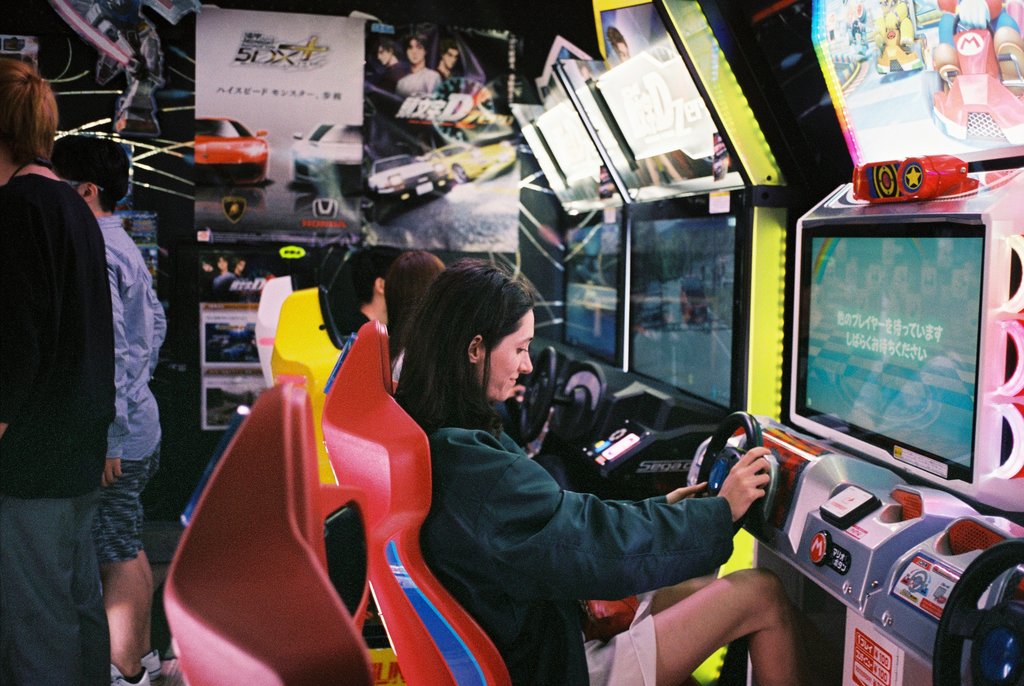Walking through Tokyo, it’s quite striking how the futuristic-looking city blends in traditional sites and aspects of its heritage.
Many often see the rapid and continuous development of a city like Tokyo as being a catalyst to the local area losing its identity and its culture. Being able to seamlessly merge the modern aspects of city living with stunning traditional sites, like the places where I saw exceptional Japanese craftsmen at work, is not just a feature of major cities, though.
In my travels across the sprawling nation and its many must-see destinations, the one aspect of Japanese life that always manages to catch my eye is that of gaming. Japan has a rich history in several spheres of gaming entertainment, some of which have seen Japanese brands become global titans, others which are very much confined to Japan.
I enjoy a good game as much as anyone and, like just about everyone else, I’ve had a mobile game or two on my smartphone. In Japan, though, what I experienced was a very different, much deeper cultural embrace of gaming.
Feeding Japanese culture which then influences the world

Perhaps Japan’s largest impact on the world of entertainment has been in video gaming. On the console front alone, Japan is home to the two biggest (out of three remaining) console companies in Sony and Nintendo. Nintendo, in particular, has transformed the way that the world plays video games, primarily by bringing what the Japanese market enjoys to the rest of the world.
In Japan over the years, I’ve seen people all over sinking into handheld consoles like the Game Boy, and now the hybrid console of the Nintendo Switch. However, even though these innovations have caught on elsewhere, Japanese games themselves are very different.
It is said that Japanese games reflect and relay aspects of the culture, with the influence of folklore, Shinto, mascots, and rituals all being evident across top-class Japanese games. The games are clearly made for the Japanese audience, and they love it that way. Just visit video game landmarks like the Square Enix Café in Tokyo or the Kyoto Headquarters for Nintendo to help grasp the success and cultural significance of games in the country.
It’s very difficult for video games created in other cultures to break in because, from what I’ve seen, Japanese gamers are so entrenched in the Japanese gaming market that it has created a robust gaming culture across the country. This infatuation with innovative gaming tech and new titles has fully validated major companies’ focus on the home market, seeing it as very healthy and trend-setting.
The Japanese gaming that doesn’t reach the rest of the world

There are other, much older forms of gaming that have recently been able to grow in popularity across Japan, primarily due to a very Japanese game that has become a staple of city entertainment. Walking around any major city in Japan, I can tell you that at some point, a pachinko parlor will catch your eye.
They glow, vibrate with chimes, and have so many flashing lights within that they are simply unmissable – the fact that there are over 10,000 in Japan helps to make them rather noticeable.
From the time that I spent on this very Japanese pastime, I gathered that they were much like slot machines in their turn-based randomization, but that the way in which all of the tumbling metallic balls result in scores is a lot like a vertical style of pinball.
In any case, the pachinko parlors have remained popular because, for a long time, they have been the only available form of gambling in the country. Now, there are hundreds of online casino games available in Japan. Still, the likes of God of Storms, Golden Macaque, and Aquaman perhaps wouldn’t have been able to become popular so quickly if the Japanese weren’t already used to and fond of the gambling game of pachinko. Perhaps the same can be said for the other classic games that have gone online, such as blackjack or roulette.
Like with video games, pachinko is seen as a very Japanese pastime, with it becoming embedded in the entertainment culture of Japan. However, the gambling scene appears to be more open to the seasoned influence of overseas brands and the titles that they have seen work, whereas, in video gaming, Japan dictates its own path.
It’s quite interesting to look at Japan’s gaming culture and how it has influenced entertainment in the country as well as around the world. The power of the country as a creative force is embedded in the nation, with so many people playing games on all kinds of platforms and in all kinds of places.

